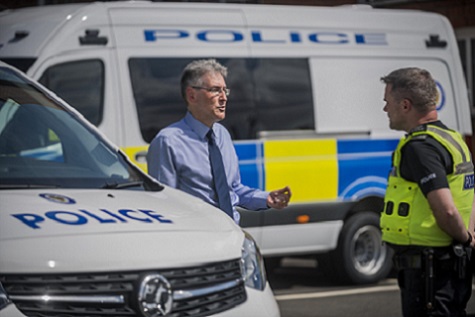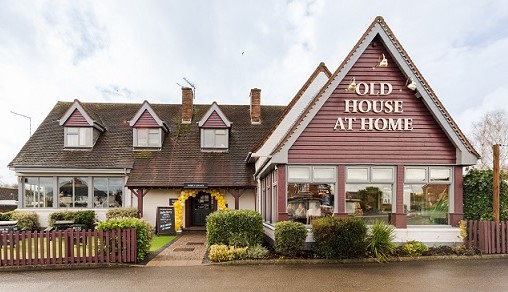Police and Crime Commissioner, Simon Foster, has declared the Government lacks the urgency needed to get a grip on prioritising road safety.
It comes after the Department for Transport’s decision to continue to retain money collected from fixed penalty notices – as opposed to speeding fines, issued in the West Midlands, being spent on improving road safety across the region. Last summer, the PCC launched a four-week public consultation on road safety and received overwhelming backing to have money raised from speeding fines spent on road safety schemes right here in the West Midlands.
The PCC campaigned to have the funds ringfenced, for use by both West Midlands Police and the seven local authorities, in the delivery of aims to improve road safety, as set out in the West Midlands Regional Road Safety Strategy 2023-2030. Currently, fines and penalty receipts – such as speeding fines – are paid into the Government’s general bank account, The Consolidated Fund, which supports general expenditure on public services across England and Wales.
An average of 16,654 fixed penalty tickets are processed by West Midlands Police per year which, in turn, generates £1.6m in income for HM Treasury. In January, the PCC hand delivered the results of his public consultation to the Department for Transport (DfT) offices in Birmingham.
More than 1,300 people took part in the consultation, with 94 per cent saying they had personally witnessed cars driving at inappropriate or excessive speeds, while the same number said more needs to be done to tackle speeding on our roads. A total of 77 per cent said they felt either unsafe or very unsafe. However, despite results clearly backing the PCC’s campaign to retain funds to be spent on improving road safety locally, the DfT have shutdown the proposals, citing that ‘fines being paid into the Consolidated Fund avoids creating incentives for the sake of generating revenues, rather than for the purpose of enforcement and road safety’.
In response, PCC Simon Foster said: “I am deeply disappointed with the response from the Department for Transport. It appears to show a real lack of urgency on the part of a government that is not prepared to grip the need to prioritise road safety.
“As Police and Crime Commissioner and, as Chair of the West Midlands Road Safety Strategic Group, reducing the number of people tragically and avoidably killed and seriously injured on our roads will always be of paramount importance. That is because the consequences of road traffic collisions are catastrophic and devastating.
The consultation I launched last year gave a clear endorsement for my view that money raised by fixed penalty fines in the West Midlands should be retained here and invested in making our roads safer.” The PCC added: “The Government’s stance is not cost neutral to the police or to the local authorities who own the cameras, which enable excessive speed activations and the tickets to be generated.
“The money generated through the enforcement of unlawful speeding on West Midlands roads should be spent in our region, on roads policing and local authority road safety activities. It should be used to fund further enforcement and improve safety on the road network for all road users.”











